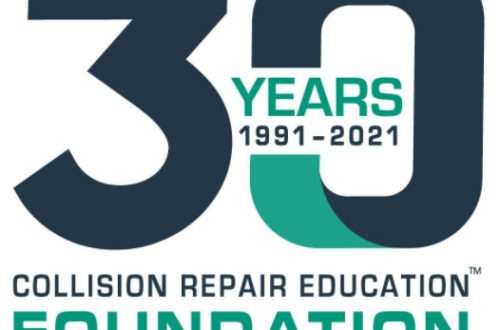The Next Generation Speaks Out on Their Collision Repair Careers
Monday, 05 November 2018 19:33
Featured in AUTOBODYNEWS

v
It is common knowledge in the collision repair industry that there is a shortage of incoming technicians. Over the past few years, many articles, educational seminars and programs have been dedicated to this dilemma.
However, while many industry professionals have spoken about what shops can do to engage millennials and Generation Z (those born between 1995 and 2009), rarely does this information come with feedback from the young people in these age groups who have decided to join the industry’s workforce.
Why did these young people pursue a career in the collision repair industry? What factors are most important when considering a company for which to work? What misperceptions have they encountered about the industry, and how can the industry’s image be improved to attract more of their peers?
These are some of the questions that several young industry professionals graciously answered for Autobody News. Their responses will help their more seasoned peers better understand their generation in order to attract and maintain new employees. Like any other group, no two individuals are the same, and their responses vary as much as their personalities. However, there are some underlying similarities and themes across their responses.
Most of those interviewed were interested in the industry from a young age. Travis Jeske, a UTI graduate who works for Caliber Collision, grew up in the automotive industry with a mechanic for a father, and he decided to pursue collision repair training so that he could open his own mechanic and body shop one day.
Alex Casillas-Mendoza, another UTI graduate and Caliber employee, shared “I have a passion for cars and have always been intrigued by the engineering, assembly and disassembly of any vehicle.”
Nineteen-year-old Meghan Grant worked in the garage with her dad when she was younger and developed a “passion for cars, trucks, bikes—you name it. Typical father-daughter stuff. My mom, on the other hand, was very artistic, so I was always painting and doing arts and crafts with her. I love being able to create things on my own, so I figured, why not mix the two? I started dabbling in the collision repair industry when I was around 13 and started seriously pursuing the field when I was 15.”
Shiloh Taft, an employee at Julian’s Auto Body and Frame, has “always enjoyed working with my hands and fixing things. It’s amazing to get something that’s broken and restore [it to] its original form.”
ABRA’s Mackenzie Hanberry found the industry a little later in life when she was working in the car wash industry and became interested in learning body work as a response to customers asking her how to repair issues with their vehicles.
Looking at what’s most important when considering a job, the young industry professionals were given five categories to prioritize: company culture, compensation and benefits, charity and community involvement, training opportunities and potential for advancement. Overall, training opportunities were the most important factor. Potential for advancement tied in second place with compensation and benefits, followed by charity and community involvement; company culture came in last.
For Jeske, “All of these are about the same importance. What’s most important is a good process because without it, work becomes a nightmare. How the shop is managed and that quality repairs are being performed outrank everything else.”
Student debt assistance was a very important consideration for Ashley Cambern of Woodlands Collision Center after she graduated school and began looking for employment.
“After high school, I wasn’t prepared to go to college and study four more years when I could be out in the world doing something I love and making money,” she said. “Plus, college tuition prices have done nothing but increase. I was excited to find out there was a one-year vocational school I could attend to put me in a career I actually wanted to do. [When seeking employment,] the most important factor to me was getting my student loans paid off within the next five to 10 years, so I didn’t apply to companies that don’t offer student loan benefits, but luckily, I found a company that has decided to help me repay my student loans once my probation period ends.”
Potential for advancement is also vital to Cambern, who stated, “I don’t want to work anywhere that I can’t get a better-paying job in the long haul. I understand starting at the bottom and working your way up, but if you have the skills and they hold you back—you don’t need to work for a place like that.”
Casillas-Mendoza agreed that the most important factor when considering a place of employment is “the opportunity to grow and build my career path progressively.”
For others, the work environment plays a vital role in their decision-making.
Taft stated, “A good group of people can really make work flow more efficiently. It’s very important for me to work with people who have the same goals as I do so we can get the job done in a timely manner and do it right the first time.”
Grant added, “I already love what I do, so the only thing that extremely concerns me is the work environment. I wouldn’t want to work somewhere that management was horrible and made me feel like I didn’t want to be there.”
These young professionals shared a lot of opinions about misperceptions of the industry.
Cambern said she feels that many people believe “you have to be trained your whole life to work on a wrecked vehicle, but it’s really just about getting familiar with the types of materials used, understanding how they fit on the vehicle and learning how to do the repair.”
Hanberry takes the opposite view.
“One big misperception about this industry is that anyone can do this, and while technically that’s true, I feel it takes a certain type of skill set that needs to be required as a technician becomes more and more advanced,” she said.
The largest misperception Grant has noticed “revolves around women in the industry. I’ve experienced first-hand people saying women can’t do it, and they’re awful at it and not strong enough. It really breaks my heart but also fuels it… whenever someone tells me women can’t work in this industry, I do my best to prove them wrong. The collision repair industry needs more women because women in this industry are amazing at what they do!”
Taft shares a similar experience.
“I always hear, ‘You don’t look like a collision repair technician.’ What is a technician supposed to look like?” she said. “Some men in this industry have also told me I shouldn’t be doing a man’s job. The only way to combat that is by proving them wrong and showing that we women can do just as well as they can.”
The general consensus for improving the industry’s image is making sure the job is done well and the customer is happy.
As Cambern pointed out, “Just one positive thing can go a lon
Casillas-Mendoza believes the older generation should recognize “that we have a fresh outlook on the industry, and we’re ready to work hard and grow in experience to become the next great generation of technicians. One major thing older guys do is underestimate the new generation techs. They think we don’t have the drive it takes to succeed in this industry, but I work hard to achieve OE-approved repairs and prove to myself and others that our generation of technicians can do as well or better than the older generation of industry veterans.”
According to Grant, “The biggest thing the older generation should know about us is that there are lots of us out here with a thirst for knowledge who want to get dirty, work hard and learn. Some of us might take a little more time than others to learn, but most of us have that drive, thirst and hunger for more knowledge so we can become the best we can be.”
Cambern hopes that established industry professionals will also recognize her generation’s need for advancement.
“We’re capable of doing things they’ve been doing for a long time,” she said. “Many places that hire people from my generation often lose them because there’s no room for advancement. It seems that younger technicians are only promoted when an older guy retires or passes away. My generation likes to feel wanted and important; they strive to do their best when they feel like they have purpose, but if their job doesn’t provide those things and offers no room for advancement, they’ll move on because there’s no reason to stay in a job that gives them no purpose.”
Brandon Eckenrode, director of development for the Collision Repair Education Foundation, agrees that the industry needs to focus on getting students involved in collision repair and showcasing the industry in a better light at middle school and high school levels.
“The industry needs to take on responsibility. Many misperceptions about collision repair can be rectified simply by making shops and schools look professional,” Eckenrode suggested. “We need to address this at a local level by getting local employers involved to demonstrate the need for these programs. Career fairs are also helpful for showing there are plenty of jobs available for those who are properly educated.”
g way.”
Hanberry added, “The better the repair, the more work will come in and the more money will be produced.”
Public image is also a major factor that needs improvement.
Casillas-Mendoza noted, “We are often portrayed as the bad guys. When insurance companies fight about repairs being done per OEM requirements, it delays vehicles getting repaired in a timely manner and results in customers getting upset with the shop. We need to regain control of our industry and not let insurance companies dictate how vehicles should be repaired to improve turn-around time and provide a better customer experience.”
When asked how to attract more young people to the industry, Cambern and Hanberry agreed that money talks.
According to Cambern, “People my age are going to college or just getting out, and paying for their student debt is the biggest thing on their mind. Also, tools are very expensive, and you can’t make money without them. I think more people would be interested in this industry if employers offered a $2,000 voucher for tools that could be repaid slowly through monthly payments.”
Hanberry added, “I understand starting at the bottom, but as a technician gets better and learns more, their pay should increase. More people are flocking to work on computers, and few people see manual labor as rewarding.”
Jeske believes the industry needs to work on attracting fresh blood at a younger age.
“Most people my age have already decided what they want to do in life. We need to get kids interested in cars and ensure high schools keep having shop programs – that’s how I got into this industry,” he said.
A big deterrent to pursuing a career in the industry is the view that more experienced professionals have of the younger generation.
Hanberry shared, “Being a millennial, we have a really bad reputation of being lazy and not wanting to work for our money. That’s how the older generation sees us, but if they’d sit down and work with us, they’d realize we are driven by hard work and being rewarded for that work.”
Offering an example of a local industry-led program that has effectively engaged local students, Eckenrode noted, “Since the Atlanta I-CAR Committee got involved with their local high school, they’ve raised nearly $400,000 to reinvest in the programs, and enrollment has doubled. The Committee’s involvement with local collision repair programs and students has had a drastic impact on the school.”
Gerry Poirier, chair of the Atlanta I-CAR Committee, recalled, “We got involved because we needed to do more than just try to get more techs into the industry. We reached out to Maxwell High School of Technology around seven years ago and approached the faculty to explain our goals. They had around 20 kids in their collision program at the time. We established an Advisory Board and started fundraising for them. We’ve donated nearly $100,000 in grants, scholarships and supplies, and their program now attracts around 80 students each year.”
The Committee is also involved with Athens Tech, Chattahoochee Tech, Atlanta Tech and North Georgia Tech, all of which have received CREF’s Makeover Grant. Their next phase will include a signing day program that guarantees employment to good students.
Poirier said, “We want to define career paths, help the schools determine if the paths are a good fit for their students and encourage students to follow the path.”


